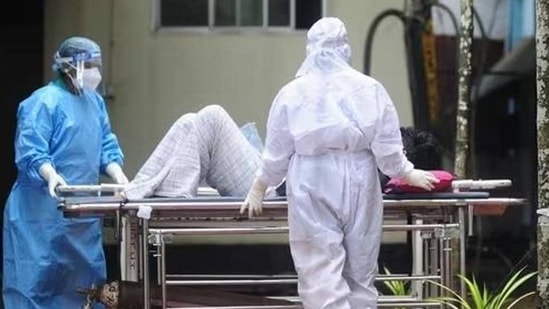Jul 21, 2024 04:35 PM IST
The Kerala government had announced recently that a special action calendar was being prepared for the prevention of a Nipah outbreak.
A 14-year-old boy from Mallapuram district of Kerala succumbed to the Nipah virus, triggering an urgent public health response from the Centre. The boy, who exhibited symptoms of acute encephalitis syndrome (AES), was initially admitted to a healthcare facility in Perinthalmanna and later transferred to a higher health center in Kozhikode.

However, the patient later succumbed to the disease. Subsequent testing by the National Institute of Virology (NIV) in Pune confirmed a Nipah virus infection.
The Union health ministry has advised the Kerala government to implement four immediate public health measures, including active case search and contact tracing.
Scientifically Speaking | Countering “Disease X”: A plan for the unseen threat
The state government has been advised to conduct active case searches within the family of the confirmed case, the neighbourhood, and other areas with similar topography to identify any additional cases. The state should trace contacts the the identified case had over the past 12 days to monitor for symptoms and prevent further spread of the virus.
Contacts of the confirmed case should be strictly quarantined, and any suspects showing symptoms should be isolated to contain the virus, according to the advisory.
Samples from potential contacts and suspects should be collected and transported for laboratory testing to ensure early detection and response.
To support the state government in managing the outbreak, a multi-member joint outbreak response team from the National ‘One Health Mission’ of the Union health ministry will be deployed. This team will assist in investigating the case, identifying epidemiological linkages, and providing technical assistance.
The ministry said that the Indian Council of Medical Research (ICMR) had sent monoclonal antibodies for patient management at the state’s request. A mobile Biosafety Level-3 (BSL-3) laboratory for testing additional samples from contacts also arrived in Kozhikode. However, the monoclonal antibodies could not be administered to the boy “due to his poor general condition.”
Nipah virus outbreaks have occurred in Kerala before, with the most recent one in 2023 in the Kozhikode district. The virus is primarily carried by fruit bats, and humans can become infected through the consumption of bat-contaminated fruits.


